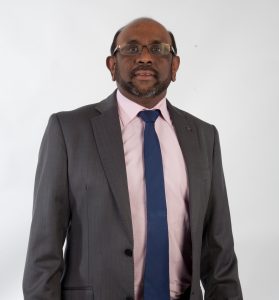Interview with an FD; Sam Nesan
November 25th 2014 | Posted by phil scott

FD, Hawes & Curtis
What do you do?
I am the finance director with the Low Profile group of companies. We own manufacturing facilities in three countries and have about 2,000 people working for us.
In the early 2000s we worked on a contract that gave us a great insight into the men’s shirt market. We learned a lot about the strength of brands and in 2001 we acquired Hawes and Curtis, a luxury shirt retailer which had strong heritage but had been badly run. We integrated our sales and manufacturing, warehousing and distribution with its retail operation and began selling high quality shirts at just £35.
The business had a turnover of £600,000 when we took over, and now we are at around £30m, hoping to reach £45m in the next few years.
We opened 26 stores in the UK and one in Cologne, Germany. We have built up a global audience online because once you have bought a shirt from us in-store, you know what you like and many of our returning customers just shop on the website now.
We also acquired the Ghost fashion brand six years ago, taking it out of administration and into profit, and in February we will launch Huxley and Cox upmarket handbags working with Bell Pottinger to build the brand.
For us, customers are king. Without customer service, you may have an excellent product but it will just sit unwanted in a warehouse. Our customers are intelligent and they want value for money. We want them to be proud to wear our shirts, so we never compromise on quality.
How did you get to where you are today?
I began as an accounts assistant in a construction engineering firm 27 years ago. I qualified with CIMA and wanted to diversify my work, so I moved into manufacturing, joining Low Profile.
I was initially the group’s management accountant, then the financial controller and when we acquired Hawes and Curtis, I became FD.
I love working in retail and the branding aspect fascinates me. It has a lot of challenges, and you have to understand the customers pay for the brand, not the product. We learned that by adding a particular label to a white shirt you can increase its price by £100, so that’s something you have to be aware of in the market.
What makes a great FD?
When you work for a medium sized business, you have to be an all-rounder. About 60 per cent of my time is spent on strategy, and I’m also involved with operations, sourcing, HR, IT and more. You can’t just do the numbers.
I think it is also important to have the confidence to give your honest opinion to your superiors, and for them to trust in your opinions. My CEO, Touker Suleyman, says that I’m the last opinion he seeks before making any major decision.
Albert Einstein once said: “Try not to become a man of success, but a man of value.” I believe to be a great FD, you have to add value.
As an FD myself, I have created the Five Cs:
– Look at everything from a commercial point of view
– Be able to communicate ideas
– Be confident in your opinions and be able challenge others
– Be competent, and able to do what you say needs doing
– Coordinate the action you know need taking
What do you enjoy outside of work?
I am a regular churchgoer and I involve myself with lots of regular church activities, and I love sports, particularly cricket which I follow very closely.
I am very interested in politics, both the UK and internationally. My brother is a local councillor, but at this stage I am just a keen observer. I had an opportunity to join a party and become a councillor but it was a full-time role and I didn’t want to give up what I already do. But we’ll see what the future holds.
Who or what inspires you?
I am really inspired by my boss, Touker Suleyman. He’s a dynamic guy, and I admire his ability to make quick decisions. I can spend three days looking into a project, all the numbers and the history, but if I take longer than three minutes telling him my findings he says: “Sam, what are you trying to tell me?” I love working for a guy who trusts me and values my opinion.
I am also a big admirer of Alan Sugar. I used to hate him, but now I adore his direct approach. Business does not rely on one person. If you get run over by a bus today, your company will carry on without you tomorrow. That’s why I like his no-nonsense style of management in the boardroom. He’s tough because he puts business first, and you have to do that for the good of everybody else.




